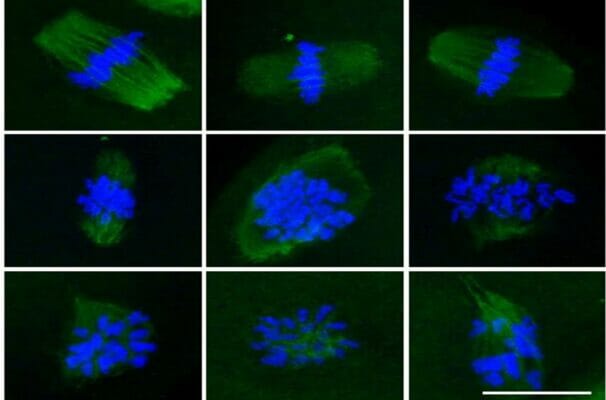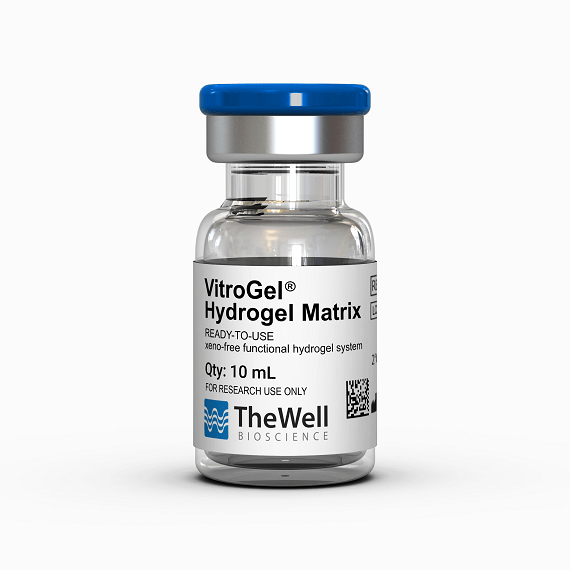Research Highlights
Identification of a Novel Antitumor Small-Molecule Known as MKI-1 via Activation of PP2A in Breast Cancer

Institutions:
Korea Institute of Radiological and Medical Sciences, Seoul, South Korea; Radiological and Medico-Oncological Sciences, University of Science and Technology, Daejeon, South Korea; Department of Integrative Biotechnology, Sungkyunkwan University, Suwon, South Korea; New Drug Development Center, Daegu-Gyeongbuk Medical Innovation Foundation, Daegu, South Korea; Center for Medicinal Chemistry, Korea Research Institute of Chemical Technology, Daejeon, South Korea
Team:
Kim A-H., Yoon Y.N., Leem J., Lee J-Y., Jung K-Y., Kang M., Ahn J., Hwang S-G., Oh J. S., Kim J-S.
Application:
Identification of a new breast cancer antitumor agent with MASTL- inhibitor capabilities known as MKI-1
Disease Model:
Breast Cancer
Hydrogel:
VitroGel® 3D
Recent mechanistic reports have described MASTL (microtubule-associated serine/threonine kinase-like) as a promising target for anticancer treatment, but very little MASTL inhibitors have been reported. In this manuscript, Kim and colleagues report the identification of a novel MASTL inhibitor known as MKI-1 using in silico screening and various in vitro tools. The data show that MKI-1 displays antitumor and radiosensitizer activity in vitro and in vivo in different breast cancer models through increased PP2A activity, resulting in a substantial decrease in c-Myc protein in breast cancer cells. Overall, the results elucidate a new small-molecular MASTL inhibitor with antitumor capabilities that may be a new target and treatment strategy for breast cancer.
Using bioinformatics and in silico screening methods, [N-1H-benzimidazol-2-yl-3-(1H-pyrrol-1-yl) bezamide], or MKI-1, a small molecule with high binding capabilities to the MASTL backbone, was identified as the most potent antitumor agent with little to no cytotoxic effects. Kim and colleagues showed that MKI-1 addition to MCF7 cells cultured using the VitroGel system inhibited colony and mammosphere formation in MCF7 cells. Further observation of the MCF7 with the VitroGel 3D system confirmed that MASTL depletion by MKI-1 increased by PP2A activity and that PP2A activity was enhanced by MKI-1 in breast cancer cells through negative regulation of c-Myc serine phosphorylation. This paper describes how the VitroGel system can be used with breast cancer cells to mimic the in vivo microenvironment, enabling mammosphere formation and observation that would not be possible in classical 2D culture systems. Altogether, this study describes a new, potent antitumor agent known as MKI-1 that can effectively reduce breast cancer cell proliferation through inhibition of MASTL and induction of PP2A activity.
Read the publication:
Related Products:



